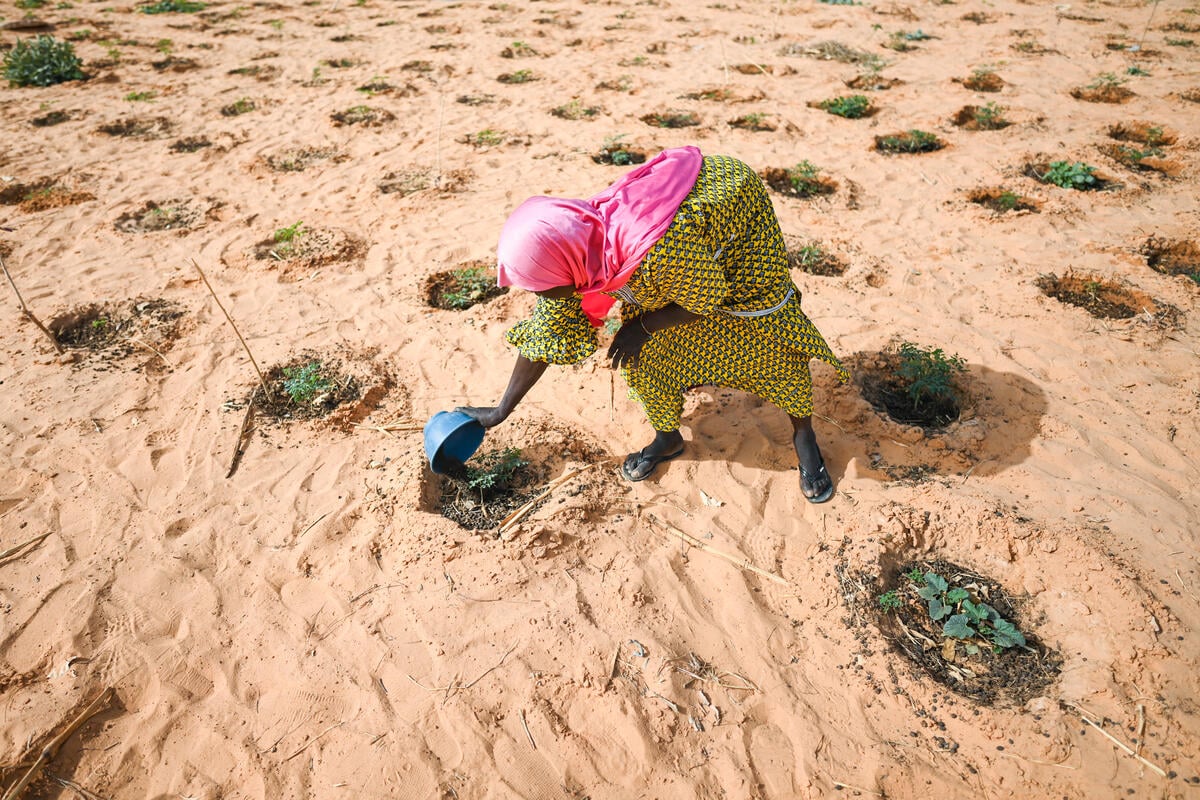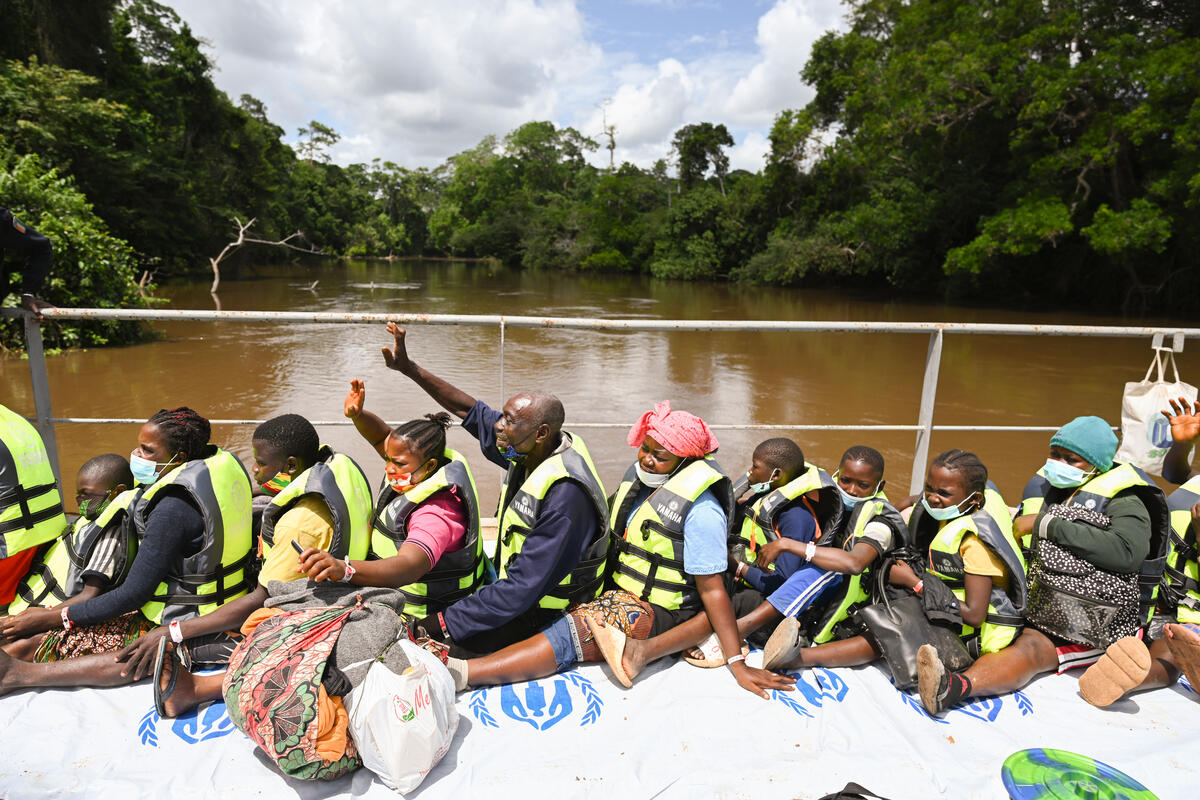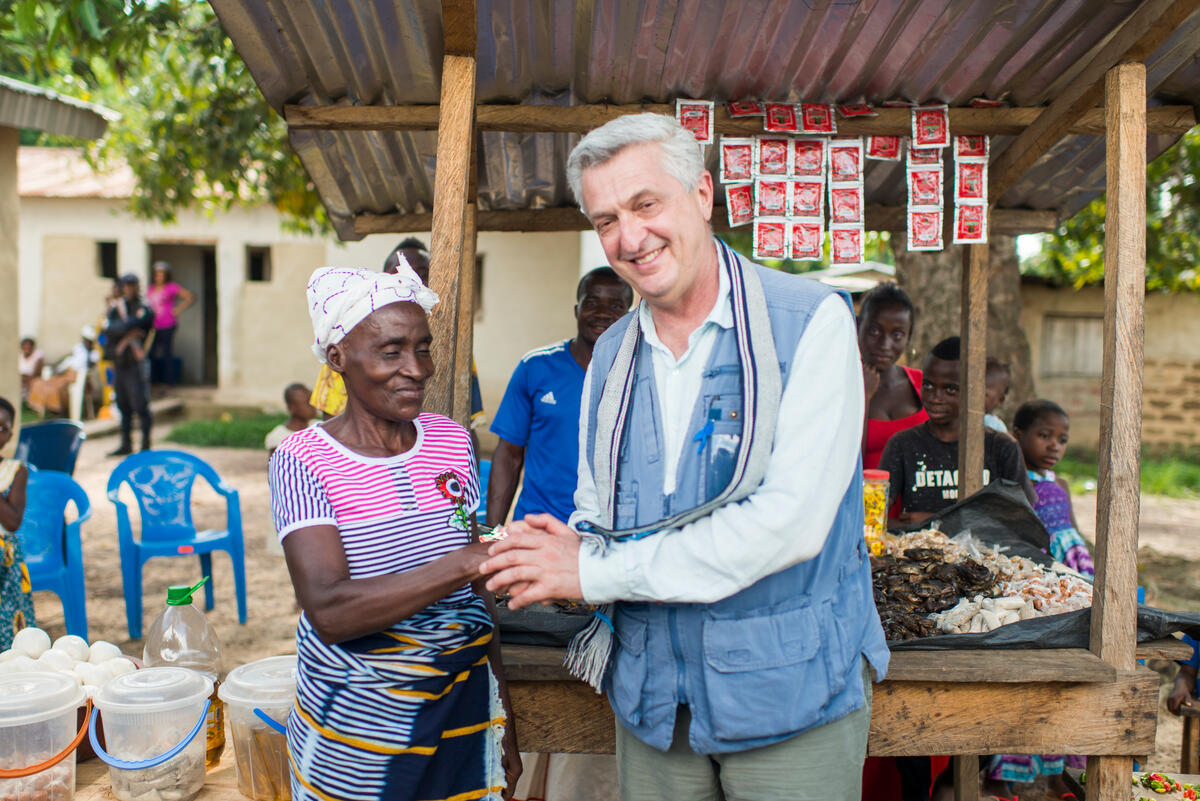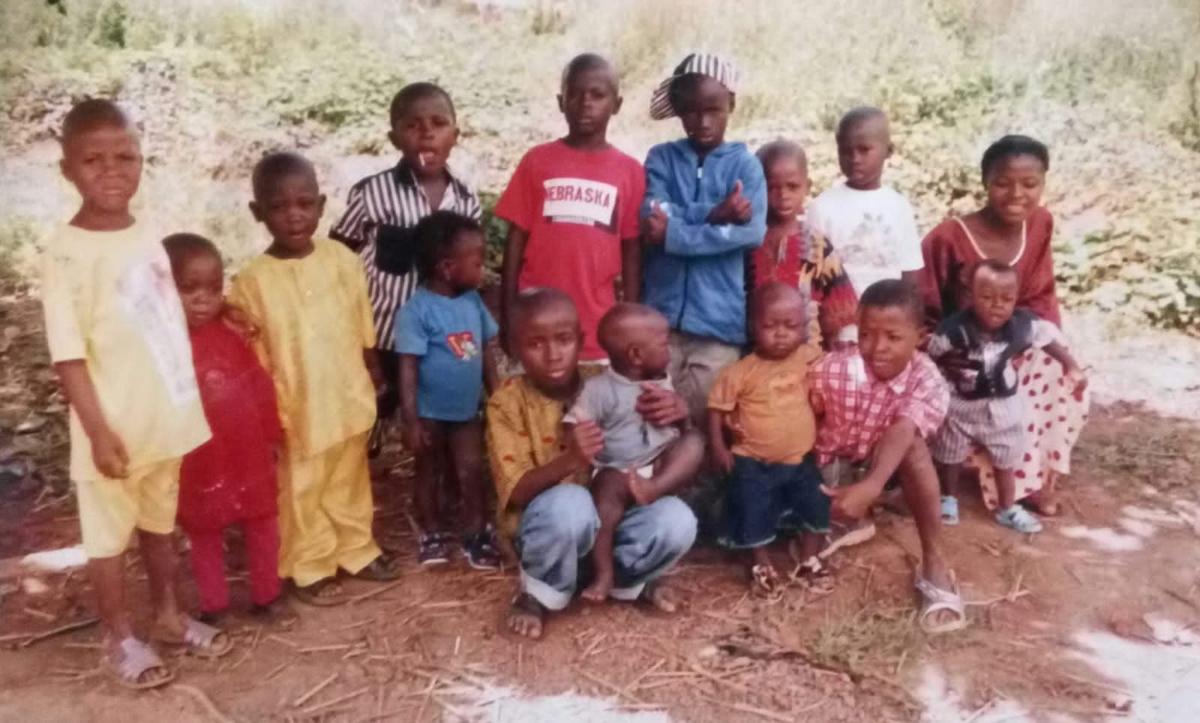UNHCR to set up new camp after Liberian influx into Guinea
UNHCR to set up new camp after Liberian influx into Guinea

Guinea, together with Côte d'Ivoire and Sierra Leone, hosts the bulk of Liberian refugees in the region.
NZEREKORE, Guinea, May 15 (UNHCR) - Up to 10,000 Liberian refugees may be headed for Guinea, hot on the heels of some 3,500 who arrived Monday in Guinea's south-eastern province of Nzérékoré as fighting raged between Liberian government troops and rebel forces in Liberia's second-largest town of Gbarnga.
According to local authorities in south-eastern Guinea, the refugees entered the country through the border crossing at Yomou, 40 km south-west of Nzérékoré town. A team of UNHCR staff travelled to the area on Wednesday to verify the reports.
Monday's influx into Guinea may represent the largest single refugee movement into the country in years. New arrivals among the 3,500 said that up to 10,000 more Liberians might be headed for Guinea to escape the latest round of fighting in Gbarnga.
After urgent meetings with government authorities in the capital, Conakry, yesterday, UNHCR's Representative in Guinea, David Kapya, obtained approval for the opening of a new site in the Nzérékoré area to accommodate the new arrivals.
"The government has now authorised us to set up a new camp at a location called Lainé, 60 km north-east of Nzérékoré," said Kapya. "We also hope to re-open the Nonah transit centre in Yomou prefecture, where we can register the new arrivals before transferring them to Lainé."
On Wednesday, UNHCR workers from the agency's office in Nzérékoré town travelled to the border areas and began registering and distributing emergency aid to the new group of refugees.
The refugees are scattered across several villages along Guinea's border with Liberia. Many are in fairly good physical condition, although still very panic-stricken. UNHCR's Kapya said the majority of those arriving were women, children and the elderly, a profile similar to those who have been arriving in a steady stream through the southern town of Macenta.
"When I visited Macenta recently, I saw a lot of women and children," said Kapya. "There were pregnant women in very bad condition. I asked them where their men were and they told me that many men had been conscripted by rebel forces as fighters or as carrier corps."
Liberian government troops have been fighting rebel forces that call themselves Liberians United for Reconciliation and Democracy (LURD) in the central Liberian town of Gbarnga. Government forces said they have successfully repelled rebels who were moving towards the capital Monrovia.
In recent weeks, the resurgence in fighting has dispersed large numbers of Liberians, including those who had already been uprooted from their homes by repeated waves of violence and had been living in displaced people's camps. The government estimates that tens of thousands of people are on the move in all directions, including towards Monrovia and neighbouring countries.
Since the beginning of the year, more than 27,000 Liberian refugees have sought asylum in Sierra Leone, Guinea, Ghana and Côte d'Ivoire. Nearly 300 entered Côte d'Ivoire over the weekend at the Gbinta border crossing, close to the south-western town of Danané.
In the meantime, the situation in Monrovia is slowly returning to normal. "The town was deserted on Monday as a result of developments in Arthington," said Moses Okello, UNHCR's Representative in Liberia, referring to Monday's rebel attack on Arthington, 25 km north-east of Monrovia. "But by yesterday the situation had begun to return to normal. Calm has returned to Monrovia today. More shops have opened and there are more people moving about."
Okello said UNHCR staff joined a UN/NGO mission Wednesday to the town of Totota, north-east of Monrovia, to assess the situation of displaced Liberians there. The refugee agency was, however, still unable to access Sinje camp, 80 km north-west of Monrovia, due to the security situation. An estimated 11,000 Sierra Leonean refugees are in that camp. More than 8,000 Liberians are also reported to have gone into the camp since the latest episode of fighting around Monrovia.
"We have maintained contact with our antenna office in Sinje," said Okello. "On Monday, there was a sense of panic among the refugees and internally displaced persons there. There is more calm today."
He added UNHCR is watching the situation very closely and was hopeful its staff would be able to return to Sinje as soon as possible. The refugee agency's workers were last in Sinje camp on Sunday, but have been unable to go back there due to the general security situation. Okello said there were also reports of fighting in Tubmanburg, north of Monrovia.
The recent rounds of fighting are only the latest in a civil war that has gripped Liberia since 1990. In all, there are more than 250,000 Liberian refugees in west and central Africa. Côte d'Ivoire, Guinea and Sierra Leone host the bulk of Liberian refugees, while Ghana and Nigeria have received a few hundred.








